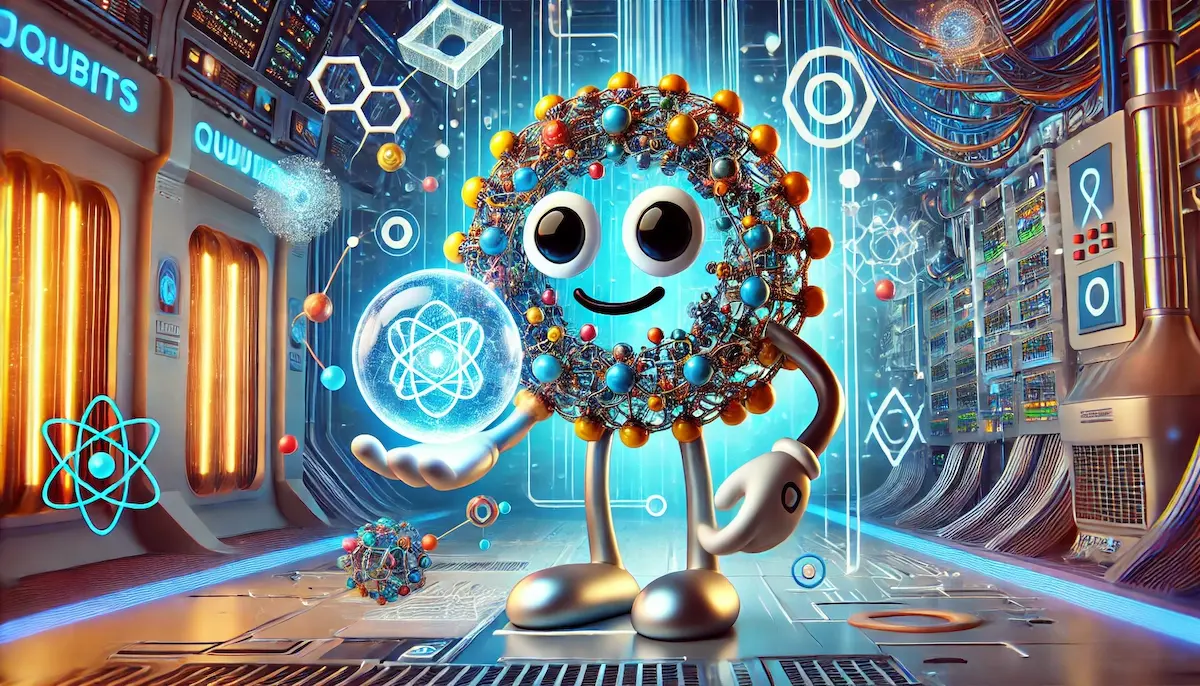Quantum bits, or qubits, are the fundamental units of information in quantum computing. Unlike classical bits, which can be either 0 or 1, qubits leverage the principles of quantum mechanics to exist in multiple states simultaneously. This unique property enables quantum computers to perform complex calculations at unprecedented speeds, revolutionizing fields such as cryptography, materials science, and artificial intelligence.
How Qubits Work
Superposition
In classical computing, a bit can be in one of two states: 0 or 1. A qubit, however, can be in a state of 0, 1, or any quantum superposition of these states. This means a qubit can represent both 0 and 1 simultaneously, thanks to the principle of superposition. Superposition allows quantum computers to process a vast amount of information in parallel, dramatically increasing their computational power.
Entanglement
Entanglement is a quantum phenomenon where qubits become interconnected such that the state of one qubit directly influences the state of another, regardless of the distance between them. When qubits are entangled, measuring the state of one instantly provides information about the state of the other. This interconnectedness enables quantum computers to solve complex problems more efficiently than classical computers.
Quantum Interference
Quantum interference is another key principle that enhances the capabilities of qubits. By manipulating the probability amplitudes of qubit states, quantum algorithms can amplify the correct answers and cancel out incorrect ones. This process allows quantum computers to find solutions to certain problems much faster than classical algorithms.
Physical Realizations of Qubits
Qubits can be implemented using various physical systems, each with its advantages and challenges. Some common approaches include:
Superconducting Qubits
Superconducting qubits are made from materials that exhibit superconductivity at very low temperatures. These qubits use tiny electrical circuits to create and manipulate quantum states. Companies like IBM and Google have developed quantum processors based on superconducting qubits, demonstrating significant advancements in quantum computing.
Trapped Ion Qubits
Trapped ion qubits use individual ions (charged atoms) confined in electromagnetic fields. Laser beams manipulate the quantum states of these ions, enabling precise control over qubit operations. Trapped ion systems are known for their high fidelity and long coherence times, making them a promising candidate for scalable quantum computing.
Topological Qubits
Topological qubits leverage the properties of exotic quasiparticles, such as anyons, which exist in two-dimensional materials. These qubits are designed to be more robust against errors, as their quantum states are protected by topological properties. While still in the experimental stage, topological qubits hold potential for creating fault-tolerant quantum computers.
Photonic Qubits
Photonic qubits use individual photons (particles of light) to represent and manipulate quantum information. These qubits can be transmitted over long distances through optical fibers, making them ideal for quantum communication and networking applications. Photonic quantum computing is still developing, but it offers unique advantages for certain types of computations.
Applications of Qubits
Quantum computing has the potential to revolutionize various fields by solving problems that are currently intractable for classical computers. Some notable applications include:
Cryptography
Quantum computers can break traditional cryptographic systems, such as RSA and ECC, by efficiently factoring large numbers and solving discrete logarithm problems. However, they also enable the development of quantum-resistant cryptographic protocols, ensuring secure communication in the quantum era.
Drug Discovery and Materials Science
Quantum computers can simulate complex molecular interactions with high precision, accelerating the discovery of new drugs and materials. This capability can lead to breakthroughs in medicine, energy storage, and materials engineering.
Optimization Problems
Many real-world problems, such as supply chain optimization and financial modeling, involve finding the best solution among a vast number of possibilities. Quantum computers can solve these optimization problems more efficiently than classical algorithms, providing significant advantages in various industries.
Artificial Intelligence
Quantum computing can enhance machine learning algorithms by speeding up data processing and improving optimization techniques. This can lead to more powerful AI systems capable of solving complex tasks with greater efficiency.
Challenges and Future Prospects
While qubits offer immense potential, several challenges must be addressed to realize practical quantum computers:
- Decoherence and Noise: Qubits are highly susceptible to environmental interference, leading to decoherence and errors. Developing error-correcting codes and more robust qubit designs is essential for building reliable quantum computers.
- Scalability: Scaling up quantum systems to handle large numbers of qubits while maintaining coherence and connectivity is a significant challenge. Advances in hardware and architecture are needed to create scalable quantum computers.
- Temperature Requirements: Many qubit implementations, such as superconducting qubits, require extremely low temperatures to operate. Finding ways to maintain these conditions in practical settings is crucial for widespread adoption.
In conclusion, qubits are the building blocks of quantum computing, harnessing the principles of superposition, entanglement, and quantum interference to perform complex computations at unprecedented speeds. As research and development continue, the potential applications of qubits will expand, transforming various fields and driving technological innovation. Blockfine thanks you for reading and hopes you found this article helpful.
